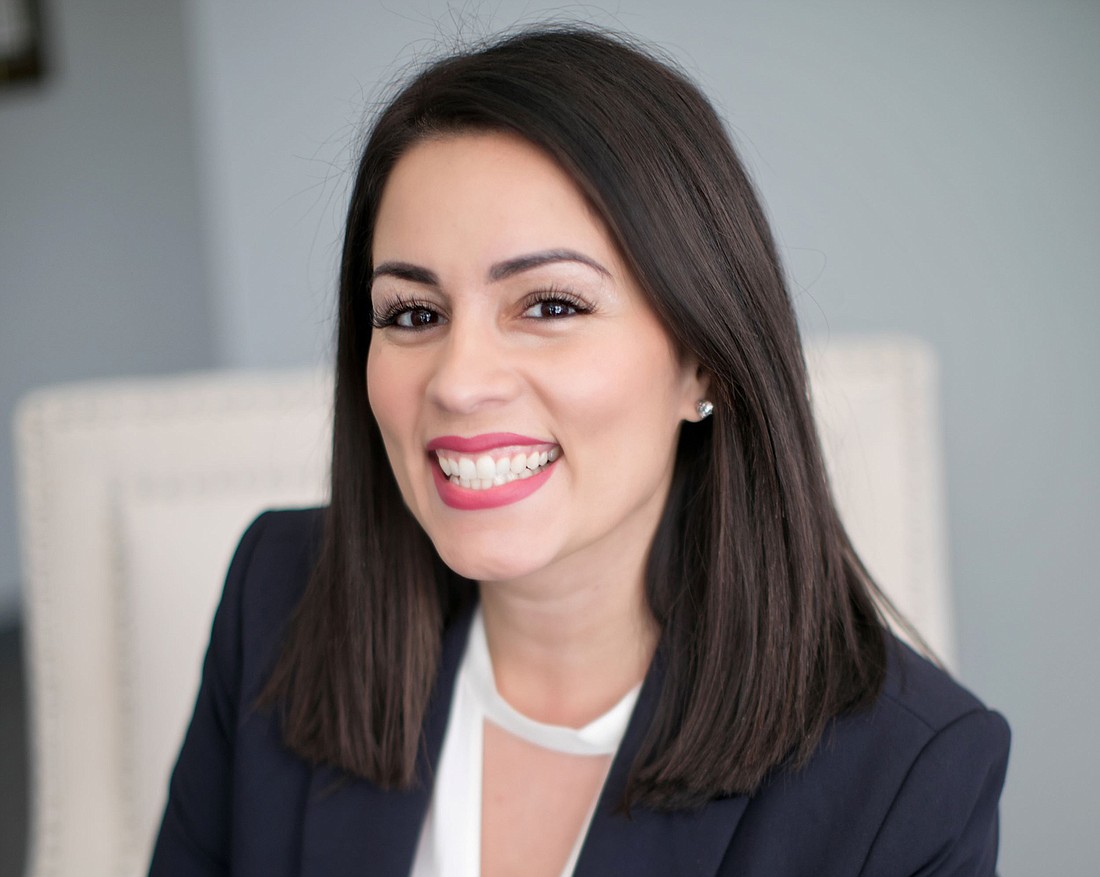
Belkis Plata was selected from among all the attorneys in the state under 36 years of age or practicing for less than five years to receive The Florida Bar Young Lawyers Division Pro Bono Award for 2020.
What inspired you to become a lawyer?
I went to college planning to become a doctor. During my time at the University of Florida, I took a class called “Exceptional People,” an introduction to issues of a diverse population in our society. One of the requirements of the class was to complete a volunteer service project with a person or persons significantly different than you. I selected the Alachua Regional Juvenile Detention Center. My time there showed me that I had many similar life experiences with those children and but for the love and support of my family I could have been where they were. I decided to change my major and go to law school in order to become an advocate for children in the system.
Someone who inspires me: My mother and my father are equally my biggest inspiration.
How did you decide your practice area? After completing the Exceptional People class, I continued to volunteer at the juvenile detention center. I found that most of the children I interacted with had been exposed to toxic stress at home. Sometimes the stress was due to physical and/or emotional separation from their loved ones, neglect and abuse, and sometimes from their financial circumstances. I wanted to be an advocate for these children and show them that they were more than the offenses they were accused of committing. By understanding the intricacies of juvenile court and its rules, I could propose ways to improve the personal, familial and contextual circumstances of these children, in turn reducing their recidivism rates.
What has been the biggest change in your practice area since you passed the Bar? The biggest change I have seen is the way in which our criminal justice system treats children convicted of serious crimes. Advances in brain science is reforming juvenile justice policy and practices across our nation by confirming the common sense understanding that children are different from adults and their sentences should take that into account. Following the 2012 U.S. Supreme Court ruling in Miller v. Alabama, courts are required to consider the circumstances of each juvenile defendant in determining an appropriate sentence. I have seen firsthand how this individualized sentencing reform has given a second chance at life to young offenders.
If I could change anything in the legal system ... I would remove minimum mandatory sentences. Mandatory minimums are directly tied to charges, meaning the same minimum sentence applies every time there is a conviction, even though the actual crimes are unique. Justice is only served when the punishment fits the crime and that can only be done when a court can decide on a case-by-case basis.
What community service have you pursued and why that? I find it a great privilege to work with children who come from similar upbringings as myself. From a very young age, I learned that poverty begets poverty. Intervention often is the only way to break the cycle. In elementary school, I was fortunate to be selected to participate in the Take Stock in Children program, a way for low-income children to escape the cycle of poverty through education. It provided me with a college scholarship and my amazing mentor, Mindy. Because of the scholarship I was able to focus on my studies while in college and I graduated with honors and debt-free. I am now living my dream and want to pay it forward. I enjoy volunteering with programs like TSIC, and others, that target the factors that put youth at risk and provide them the tools and resources to become successful and break the cycle of poverty for themselves and their families.
What’s your advice for new lawyers? My advice is to strive to incorporate pro bono work from the onset of their career. We each have the responsibility to uphold the law and provide access to justice for all and pro bono work is one of the greatest ways to do that. Pro bono work can afford attorneys an opportunity to meet a broader section of the legal community while gaining experience, confidence and visibility both inside and outside the offices in which they work. Pro bono work can be the foundation for a healthy, successful and satisfying career.